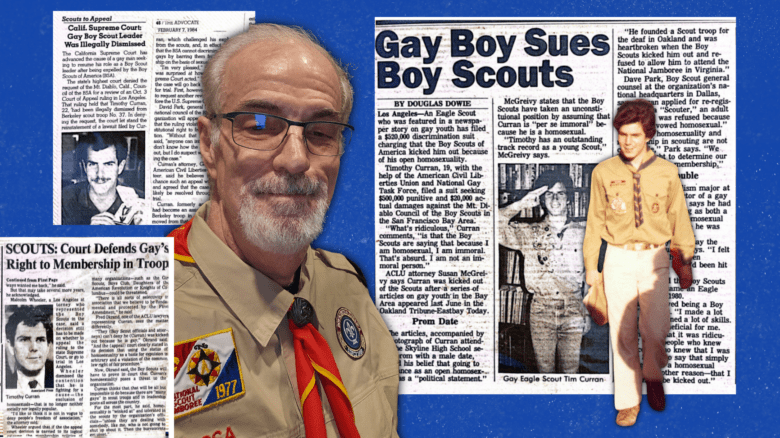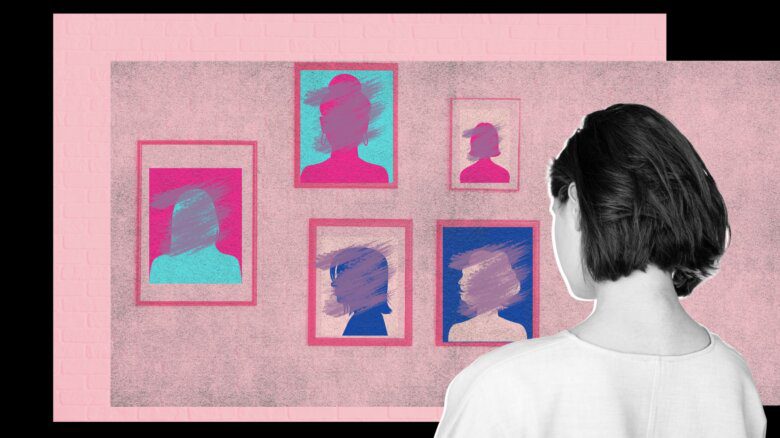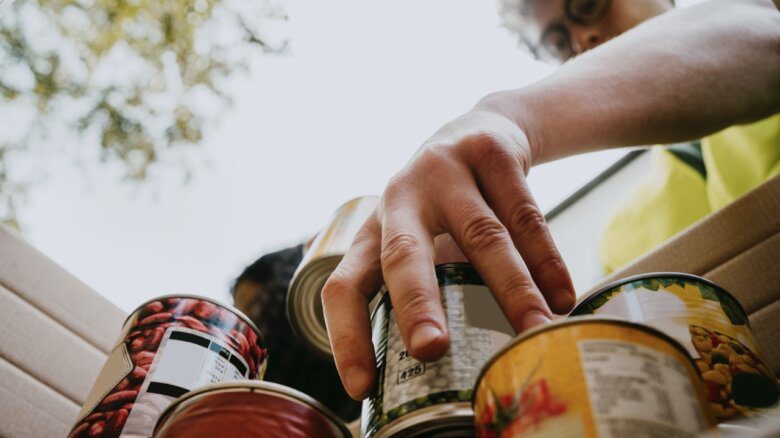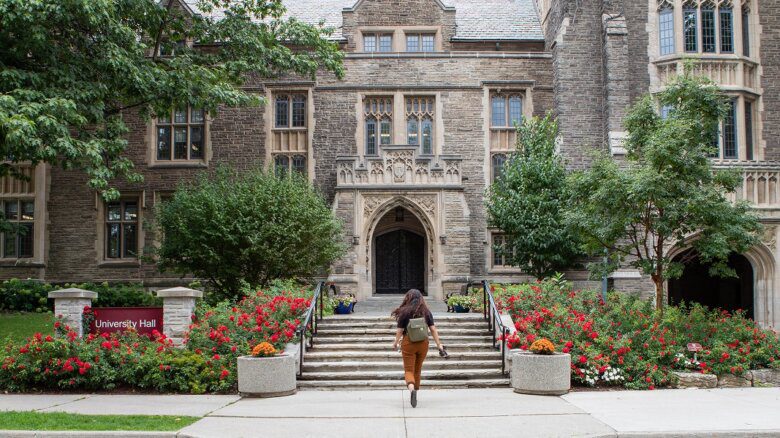In the wake of the recent expansions to Florida’s Parental Rights in Education Act, or “Don’t Say Gay” law, LGBTQ2S+ students and teachers are growing increasingly concerned about how the updated law will affect them once school reconvenes in the fall. The expansions, from both the state legislature and the Florida Board of Education, go well beyond the scope of the original law, imposing further restrictions on middle school and high school students and teachers in the state.
While the “Don’t Say Gay” law initially banned classroom instruction on gender identity and sexual orientation in grades K-3 or “in a manner that is not age-appropriate or developmentally appropriate” in grades 4–12, the state Board of Education approved a new rule in April, at Gov. Ron DeSantis’s behest, expanding the original law to all grade levels. The state legislature also passed another expansion of “Don’t Say Gay” in May, known as HB 1069, which prohibits such instruction in grades K–8. What constitutes “instruction,” however, is not clearly defined, leaving the law open to broad interpretation.
The new measure, which goes into effect July 1, also prevents students in grades K–5 from receiving health and sex education lessons that discuss human sexuality, sexually transmitted diseases and menstruation and requires schools to teach students in grades 6–12 that male and female “reproductive roles are binary, stable and unchangeable.”
Beyond this, the law dictates that schools must teach abstinence as both the most effective form of contraception outside of marriage, and the “expected standard” for students of all ages, while also highlighting the “benefits of monogamous heterosexual marriage.”
In addition, the new legislation prevents students and teachers from requesting that others use their correct names and pronouns, forcing schools to teach kids that “a person’s sex is an immutable biological trait and that it is false to ascribe to a person a pronoun that does not correspond to such person’s sex.” Exactly how this law will be enforced, however, appears to depend largely upon the individual school.
“There’s a lot of confusion because the laws are written so vaguely, and that leaves a lot of room for abuse”
As a result, LGBTQ2S+ students are afraid of what the updated law could mean for them and how it could be enforced to the most extreme limits of the law. “There’s a lot of confusion because the laws are written so vaguely, and that leaves a lot of room for abuse,” Scarlett Seyler, a rising senior at Boone High School in Orlando, tells Xtra. “So even if these laws were not inherently homophobic, which they are, there’s so much room for people with homophobic agendas in power to use these laws to hurt queer students.”
Seyler, who is bisexual and president of her school’s Queer Ally Alliance (QAA), says that “anti-LGBTQ2S+ sentiments have been enforced in Florida public schools since well before this law was expanded.” She recounted two instances this year in which QAA’s events were cancelled, the most public of which was the club’s “drag and donuts” event. Seyler says the event was misconstrued by the media as an in-school drag show that every student would be forced to attend, sparking outrage among parents.
In reality, however, the club had invited local drag performer Momma Ashley Rose, who runs a charitable foundation that mentors LGBTQ2S+ youth, to come talk about self-acceptance over donuts during the QAA’s after-school meeting. The school administration only cancelled the event after allegedly receiving a threatening message from the state Department of Education. Neither version of the “Don’t Say Gay” law is supposed to affect extracurricular activities; only classroom instruction.
Following the event’s cancellation, around 100 students showed up to demonstrate their support for the club. “No matter how much those in power, and adults, are going to say that this is being forced on students and that students don’t want a queer community on their campuses, the students showed up and said, ‘No, that’s not true, we want to support everyone. Everyone matters to us,’” Seyler says.
Because of this, Seyler and her fellow QAA members are fearful that their club could be shut down completely once school starts again in the fall. “We’ve seen this legislation be enforced outside of what it says it’s going to do, so there’s a lot of fear that no matter what they say, we are in jeopardy,” she says.
Jacob Washuta, a rising junior at Boone High School, says that the overwhelming majority of students at his school are not supportive of the law and do not feel unsafe in school because of the pronouns or bathrooms some kids use. “There are definitely bigger issues at hand that we would like to be tackled when it comes to student safety,” he says. “Just look at the rise in gun violence in Florida.”
Washuta, who is bisexual and a QAA member, also says that it’s “very dystopian” that students are so often left out of the conversation when discussing and debating these policies, despite being directly affected by it. “It feels scary to see people who have no real place in a school deciding what happens within schools, especially groups like Moms for Liberty,” he says. Moms for Liberty is a far-right “parental rights” organization that regularly targets schools, advocating for book bans and laws that outlaw or limit the teaching of certain topics, like racism, slavery and the LGBTQ2S+ community. “Very often, those are the people who we have to compete with to be able to speak at school board meetings.” According to Washuta, members of Moms for Liberty in Orange County “intentionally fill the line” at school board meetings so students don’t have time to speak and make their voices heard, “which I feel is very indicative of what they’re attempting to do.”
“It shows you what they meant when they said ‘parental rights’ over and over again,” Brandon Wolf, the press secretary of Equality Florida, tells Xtra. Wolf says that this law “gives a handful of extremists in the community” the power to “essentially censor” the mere mention of LGBTQ2S+ people out of the classroom, noting that only a few people are responsible for the bans on LGBTQ2S+-themed books, Pride flags and rainbow stickers in schools across Florida and the U.S. as a whole. “And it sends an incredibly dangerous message,” he says.
According to Zai Riveiro, a recent graduate of Dr. Phillips High School in Orlando, their school had already started to crack down on pronouns and names prior to the expansion of the “Don’t Say Gay” law, noting that the school administration suddenly changed a yearbook policy regarding name changes this past school year. “They sent out forms saying if you want your name changed in the yearbook for any reason whatsoever, your parent had to sign off on this, and this is literally the first and only time it’s ever happened,” Riveiro says.
Riveiro, who is non-binary, says that half of the students in the school’s Gay-Straight Alliance (GSA) were forced to have their deadname printed on the club’s yearbook page. “I feel so bad for these kids because they can’t ask their parents. Most of them are closeted or they’re scared and they can’t come out,” they say. “And now with this law coming out, if they do ask or want to talk to a teacher and they accidentally talk to the wrong teacher, the consequences are so severe. They could get kicked out of their houses.”
Riveiro says the updated law “conveys something so hateful for absolutely no reason whatsoever, just because somebody doesn’t like the way we love or the way we are,” adding that the measure does nothing to help foster a safe learning environment and could negatively affect the education and development of students who are LGBTQ2S+ or may be questioning their identity. “You need to have that safety and security,” they say. “And how are kids supposed to have that if they’re fearful?”
Seyler and Washuta are also greatly disturbed by how the law will affect teachers, who they both say are in a tough situation. “They’re sort of damned if they do and damned if they don’t,” Seyler says, noting that teachers run the risk of losing their jobs or even their teaching licences if they show support for their LGBTQ2S+ students, but that they also risk hurting their students if they don’t demonstrate their support and acceptance. She also notes that this law forces teachers to spend more time, effort and energy on self-preservation, “which should be spent on education and supporting students.”
“The vagueness is creating a culture of fear,” Washuta says. “Teachers don’t know what they can say, and are fearful of losing their jobs.”
LGBTQ2S+ teachers in Florida echo these sentiments, telling Xtra that they’re concerned the updated “Don’t Say Gay” law will hinder their ability to do their jobs and prevent them from creating a welcoming learning environment for students. “It’s certainly had a very chilling effect on us all,” says Carol Cleaver, a middle school science teacher in Pensacola. “It just really feels like anything that I say could be used against me.”
Cleaver, who is a lesbian and works with several other queer teachers, says that the staff at her school are worried that they could be fired for showing support for the LGBTQ2S+ community, which she fears could contribute to negative mental health outcomes for queer and trans students. “There are very real costs to this,” she says. “They need to be accepted for who they are and they need to know that they’re in a safe space.”
Cleaver says the expansion will make her job as a science teacher more difficult, especially when it comes to lessons about biology and how the human body works. As a teacher and a parent, Cleaver says she wants to be honest with students about topics like menstruation and reproductive health in an informative and age-appropriate way. “That doesn’t mean I’m pushing a gay agenda on them,” she says. “It means that I’m going to teach them science, and I’m going to teach them the standards that are there.”
Gretchen Robinson, a lesbian high school teacher in Orange County, says that she’s “very concerned about this expansion” and the impact it could have on students and fellow teachers. Robinson says that schools don’t typically have lessons that focus entirely on gender identity and sexual orientation, but that it would be “inappropriate not to discuss” these concepts in lessons about human sexuality, especially in high school. “It just erases a major part of the spectrum” and “further creates an atmosphere of anxiety and paranoia amongst educators because we’re all afraid that if we put a foot wrong, we could lose our licences and lose our retirement and lose everything else we’ve been working toward,” she says.
According to Brian Kerekes, a high school math teacher in Osceola County, “there’s some anxiety and apprehension as to how we move forward from this point because of the language in the bill.” Kerekes finds the new pronoun policy particularly “frustrating” and “really ridiculous.” He says that it’s important for educators to build relationships with students to not only help them learn, but to also let them know that they’re in a safe and accepting environment.
That’s why Kerekes, who is gay, asks his students for their names and pronouns at the start of every year. “If we have to start pulling away from these really basic gestures of respect that we show for our students, I don’t think that that helps,” he says. “You really just want to do what’s best for the student and do the best to help them to grow and be successful.” Kerekes says he’s also worried that a total lack of discussion and representation at school will make LGBTQ2S+ and questioning students feel ashamed, adding that he’s unsure if the law will affect his school’s GSA, which provides a haven for queer and trans students. “Those students are just looking for a place to go and belong and form a community in the school, so I would hate for them to lose that,” he says.
Cleaver says that the sentiments behind the law’s pronouns provision have already had an impact on her community, admitting that there are a few teachers at her school who refuse to recognize trans and non-binary students’ correct names and pronouns, which only makes these students feel uncomfortable in their classrooms. “I’m disappointed that grownups would not respect another person and their preferred name,” she says. “Children learn better in an atmosphere where they feel respected too, and they’re not asking us to do anything unreasonable.”
Cleaver, Kerekes and Robinson all express feeling insulted by the broad allegations of “grooming” and inappropriate behaviour being thrown around by lawmakers and proponents of the law. Instead of vilifying teachers for being LGBTQ2S+ or for showing their support for the queer and trans community, they recommend elected officials focus on a much more real and relevant issue facing schools in Florida: teacher shortages. Lawmakers in the state have not offered up any meaningful solutions to this crisis, which is greatly impacting public schools, nor have they made any progress on passing legislation to help protect students from the very real threat of gun violence in schools. Instead, they have made it a priority to pass laws, like the updated “Don’t Say Gay” law, which only imposes further harms and restrictions on an already vulnerable population, who just want to have the freedom to go to school and be themselves.
“I think that a lot of growing up in a more accepting time means that you are not going to be made uncomfortable by someone else’s existence, even if that existence is different from yours and that a lot of adults are struggling to wrap their heads around people’s new freedoms that they’re enforcing their views and their fear on to their students,” Seyler says. “It’s only going to serve to further the othering of queer students on campus and it’s really going to distract and detract from the learning environment.”


 Why you can trust Xtra
Why you can trust Xtra


